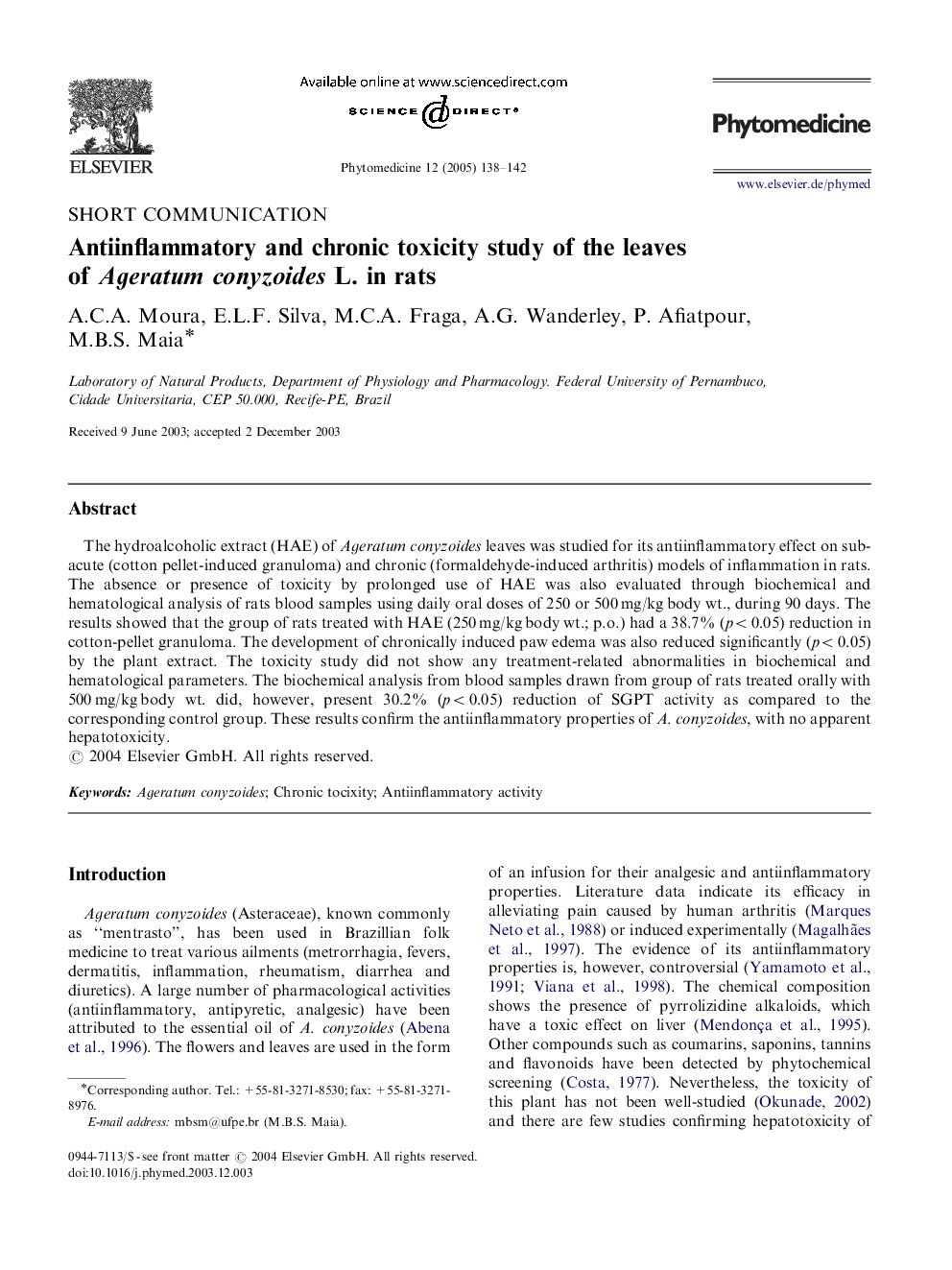| Article ID | Journal | Published Year | Pages | File Type |
|---|---|---|---|---|
| 8999808 | Phytomedicine | 2005 | 5 Pages |
Abstract
The hydroalcoholic extract (HAE) of Ageratum conyzoides leaves was studied for its antiinflammatory effect on sub-acute (cotton pellet-induced granuloma) and chronic (formaldehyde-induced arthritis) models of inflammation in rats. The absence or presence of toxicity by prolonged use of HAE was also evaluated through biochemical and hematological analysis of rats blood samples using daily oral doses of 250 or 500 mg/kg body wt., during 90 days. The results showed that the group of rats treated with HAE (250 mg/kg body wt.; p.o.) had a 38.7% (p<0.05) reduction in cotton-pellet granuloma. The development of chronically induced paw edema was also reduced significantly (p<0.05) by the plant extract. The toxicity study did not show any treatment-related abnormalities in biochemical and hematological parameters. The biochemical analysis from blood samples drawn from group of rats treated orally with 500 mg/kg body wt. did, however, present 30.2% (p<0.05) reduction of SGPT activity as compared to the corresponding control group. These results confirm the antiinflammatory properties of A. conyzoides, with no apparent hepatotoxicity.
Related Topics
Life Sciences
Biochemistry, Genetics and Molecular Biology
Clinical Biochemistry
Authors
A.C.A. Moura, E.L.F. Silva, M.C.A. Fraga, A.G. Wanderley, P. Afiatpour, M.B.S. Maia,
